

![]()
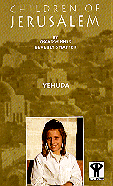
|
Children of Jerusalem:
Directed by Beverly Shaffer. Subject Headings:
Grades 5 and up / Ages 10 and up.
* * * 1/2 /4
|
excerpts from children's songs:
As he makes peace in the sky above
He will make peace on earth.
I hope God will make real peace
between Arab and Jew.
-- TamaraMy name is Palestine
Today I will die
Today I will rise
Today I will live
Until victory, until victory
Until imperialism is defeated...
I am the child of Arab-Jerusalem
I am the child of Palestine.
-- Neveen
JERUSALEM IS A BUBBLING CAULDRON of different religious beliefs, customs, political ideologies, and ethnicities. In other cities around the world, parents teach their children traffic safety; in Jerusalem they also teach how to avoid street battles and what to do if you're caught in one.
In this "City of Three Sabbaths" (Friday for the Muslim, Saturday for the Jew, and Sunday for the Christian), shadows of distrust and fear shatter the hopes of peace and the dreams of the future shared by Jerusalem's children. Every child and every parent talks about peace between Arab and Jew. But historically, peace for one has been seen as defeat for the other.
In this five-part documentary, Oscar-winning Canadian directory Beverly Shaffer examines the complexities of life in Jerusalem through the eyes of five children: three Jewish; one Palestinian Christian; and one Palestinian Muslim. As each child tells a part of their life story, the historical and sociological facts of Jerusalem come to life.
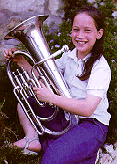
Because the narrators are nine, ten, and eleven-year-old children, one might fear that only platitudes will come "out of the mouths of babes." And the children do speak to elemental needs and desires with discerning candour. But Shaffer is too good a film-maker to leave us there. We soon see how parental truths become a child's truth at a very young age; each child clearly speaks from their own cultural heritage, religious beliefs, and political and social realities.
The three segments narrated by Jewish children present a powerful affirmation of the ideal meaning of Israel and the good life it has created for the Jewish people. For Tamara, Israel is the land of freedom, where Jews are now free from the people who hate and persecute them. She has a brother who lives on a kibbutz. She likes to help him pick the delicious fruit that grows on the trees and gets to eat all she wants herself. Her other brother is doing his military service. He has been stationed in the Occupied Territories because of terrorist threats to Jewish settlements.
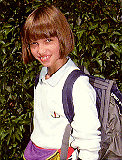
Asya, a recent emigre, tells us that although it was hard for mother, leaving Russia was "great." In Israel, people smile, there is plenty of food in the markets, and the government is helping her father, a physics professor, find a job. Some of her family had gone to Canada, but now they are coming to Israel too.
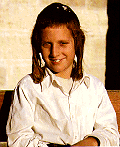
For Yehuda, an Hasidic Jew whose family came from Poland, the high points of his day are the three times he prays; Israel is where practices religion in touch with the historical realities of his faith.
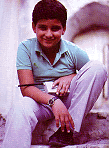
The picture is different of course when seen through the eyes of the Palestinian children. Their lives revolve around hard realities, not ideals. Yacoub is a working-class Palestinian Christian who helps in his uncle's falafel shop. His favourite game is "walkie-talkie," -- a game of youth versus the Israeli army. Yacoub and his brother try to avoid the street patrols by making up secret passwords on their radios and scuttling through the allays of the old city. Much of his family has moved away from Jerusalem to all the different countries of the Middle East because there was no work for them.
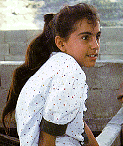
Neveen has spent the eleven years of her life in the crowded Shu'afat refugee camp. Her parents village, in the Occupied Territories, was turned into an Israeli settlement. "You build a home over a lifetime and it can be torn down overnight," says her mother. Neveen wants to be a doctor, so that she can help her people, just like the United Nations doctors at the refugee clinic.
The sympathies and emotions in Children of Jerusalem lean towards the Palestinian children. Clearly, they are the more oppressed: their games revolve around violence; their land has been taken away; and real opportunities are few. And Neveen and Yacoub fit the organic make-up of the Middle East. By contrast, the lives of the Jewish children, their interests and heritage, appear grafted from Western European roots onto an unwilling host.
Personal points of view and purpose, will, of course, determine which parts will be shown to students. The National Film Board has taken a pragmatic approach to this potential marketing problem. besides being available in English, the Tamara, Asya, and Yehuda segments are also available in Hebrew. Neveen and Yacoub are available in Arabic.
Also included with the film is a very good insert which covers some historical background to the Middle East and offers suggestions on how teachers can use the films with different age groups.
Recommended.
Ian Stewart works at Lord Nelson School and the University of Winnipeg Library.
To comment on this title or this review, send mail to cmeditor@mts.net.
![]()
Copyright © 1996 the Manitoba Library Association.
Reproduction for personal use is permitted only if this copyright notice
is maintained. Any other reproduction is prohibited without permission.
Published by
The Manitoba Library Association
ISSN 1201-9364
![]()